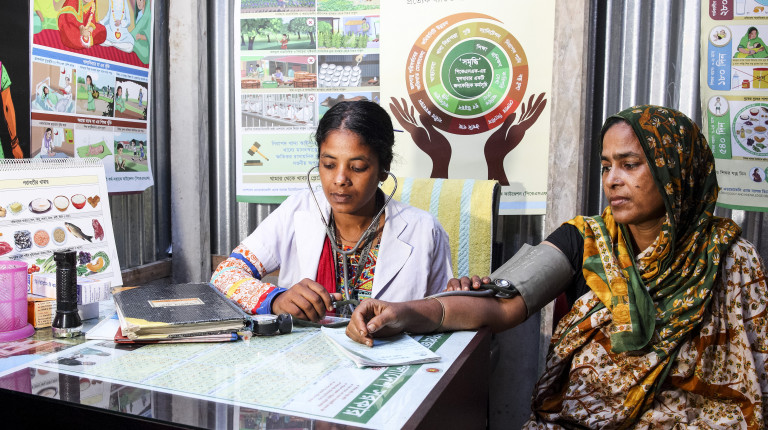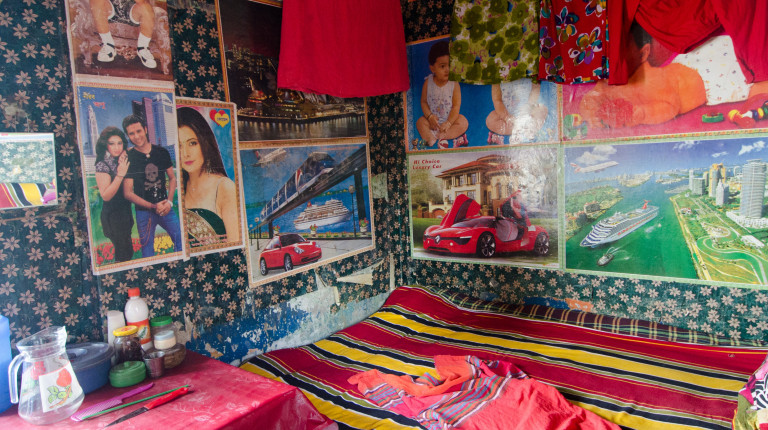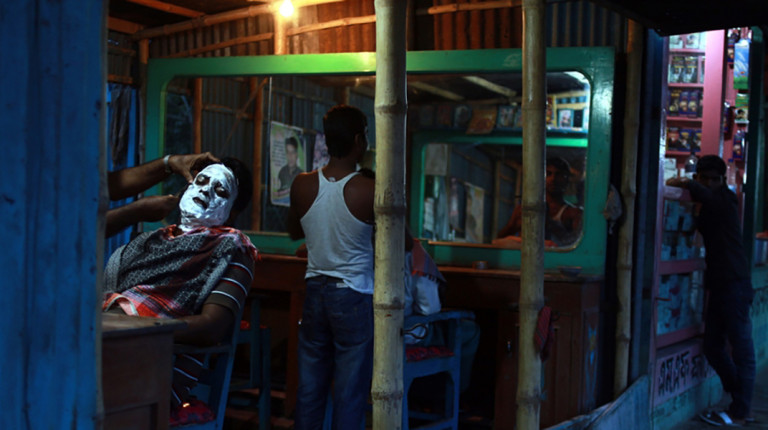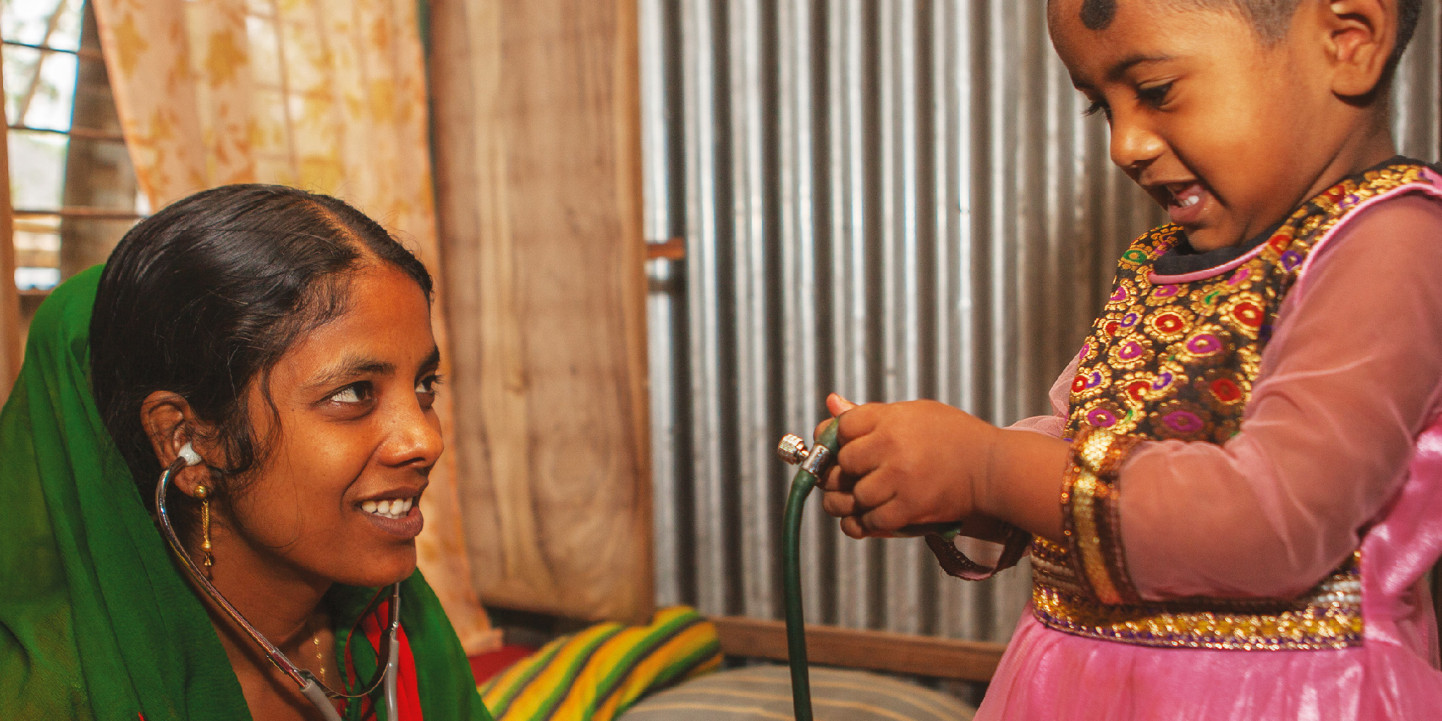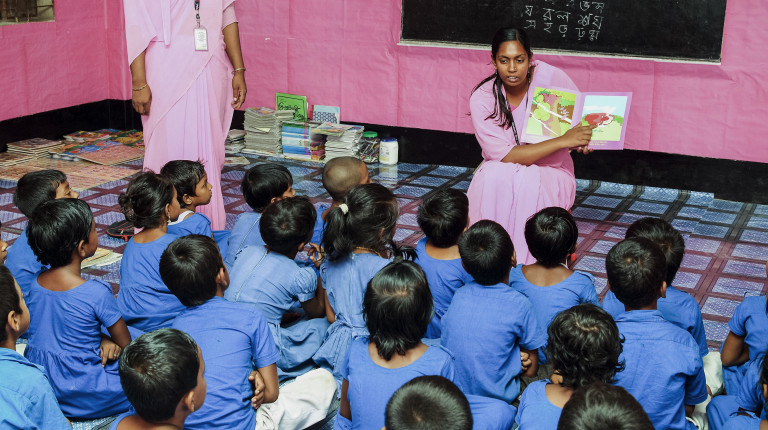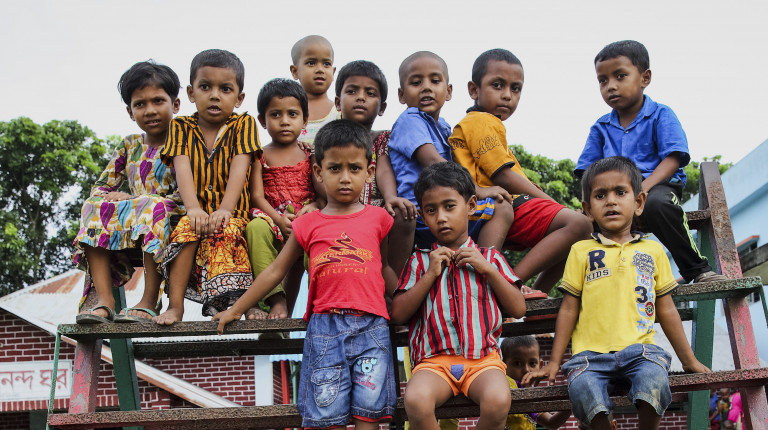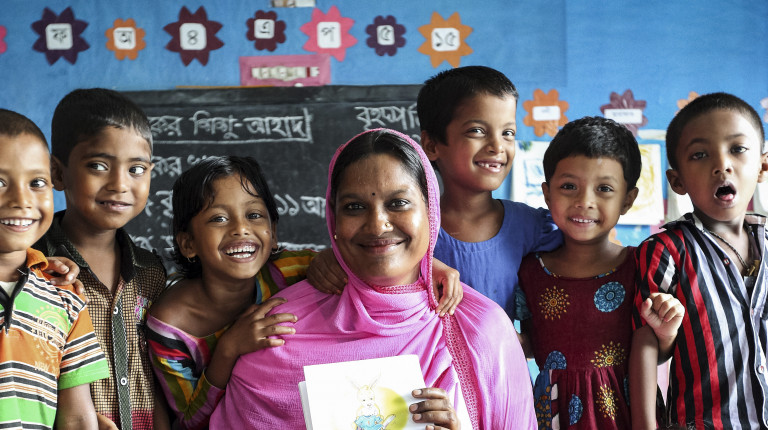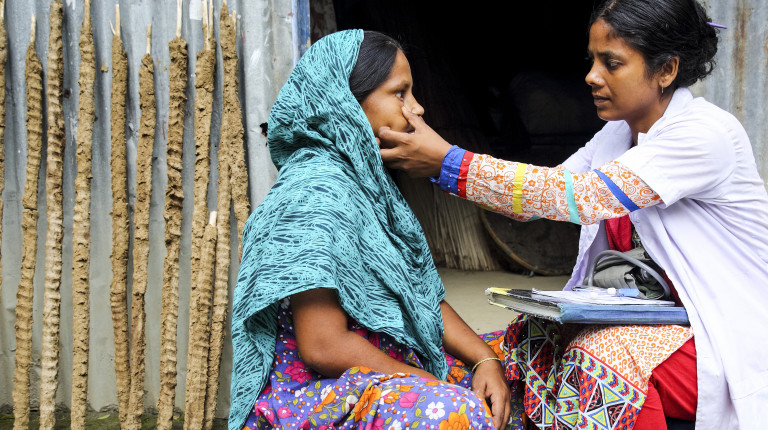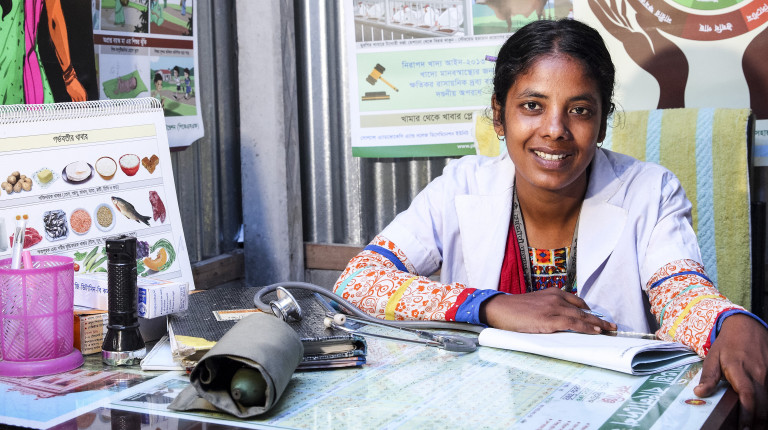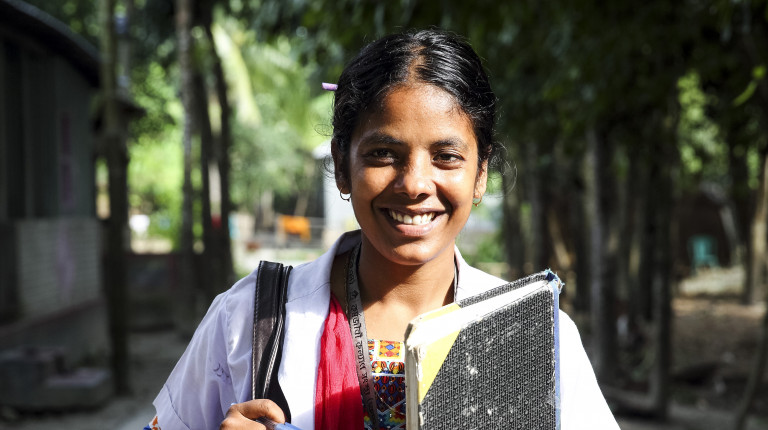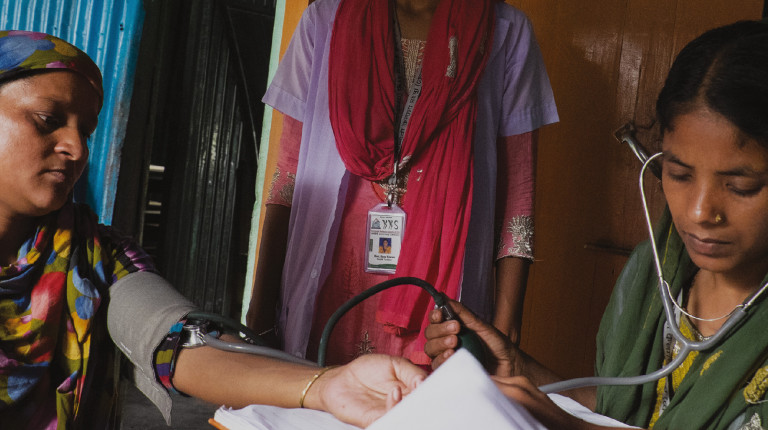It was almost 30 years ago when Rupa began her new life in Bangladesh.
Lured by the promise of well-paid work in city, her mother crossed the river Padma, and arrived in this gloomy riverside town. She was only three years old.
A dark past
Now living in safety, her voice still cracks and breaks when she recounts what she witnessed as a child.
“The brothel is a dark place. Life in the brothel is not life at all. I hated that life. I hated growing up inside the brothel. Children are not safe here. It was terrifying. I was always scared. I passed my day with deep sorrow. In fear of being involved in the sex trade.”
The brothel is a hub for local trade. A place that is home to 1600 women who sell sex to around 3000 customers every day. Some were kidnapped as children by gangs, some are sold by family members, others tricked by boyfriends or pimps.
Her mother was a chowkri (bonded sex-worker).
They shared a single room of corrugated iron where her mother entertained clients. When she was a baby her mother would hide her under the bed.
Living in the brothel
In very early days when she was a small girl living in the brothel, she usually got up very late, sometimes she did not leave their room until the afternoon.
If Rupa completed errands for customers who visited the brothel she could buy packets of food from vendors, but most mornings she missed out on breakfast sometimes she went without lunch. And in the would spend the afternoons playing with her friends who lived in the brothel, chatting, playing cards, chess, and carom board all day long.
Evening time was business hour, men would come and young girls danced in the bars and sat drinking with their customers. When her mother brought a customer back to their room she would go outside and play with her friends. They would run around the brothel lanes in the dark.
Sometimes, she danced with her friends to the silly odd songs they played in the bars. Sometimes customers hired them to bring alcohol and cigarettes, or watched adult movies with them.
“I was never happy with my childhood. My childhood was very painful for me. Every moment I passed through panic and fear of getting involve with sex trade.”
For a long time there was no escape. She watched as her friends were forced into sex work.
It seemed inevitable that one day they would come for her too.
“One of my friends became a sex worker at the age of 12. Was it my destiny to be a sex worker?” She wondered. “All those things appeared to me and I remain depressed by picturing the disgraceful future.”
It is estimated that half the sex workers are under eighteen, but accurate figures are difficult to verify, as young girls are forced to take Oradexon, a cow steroid used by farmers to fatten livestock. It makes them gain weight rapidly, giving the appearance that these poorly nourished teens are in fact healthy and older than their years.
Hope in the brothel
The only real chance these children have to escape this fate is to get an education, but the children who are born here, are excluded from public schools.
But for a long time. There was no hope. No school would take them.
Stigmatised from birth, the children who are born here are denied even their most basic of human rights.
Sex-workers enrolled their sons and daughters in government schools outside the brothel, but the children, teachers, and parents complained, and so they were turned away.
Excluded from mainstream society, deprived of their right to education or opportunity, the girls who live in the brothel, almost inevitably follow their mothers into sex work to survive.
The years passed. Rupa watched as her friends were forced into prostitution, terrified that one-day they would come for her.
It seemed inevitable.
Then, in 1997, Save the Children opened the first and only school in the brothel, where children were able to get health care, meals, an education and lots of love from trained teachers.
It is here that Rupa came to study with her friends. They learned to laugh, play, dance, and for the first time they could allow themselves to dream.
She worked hard, graduated from school and went to the city where she became a qualified paramedic.
Rupa found a job, got married and, years later, she was able to help her mother and eldest sister leave the brothel and start a new life.
“It is education which turned my life from the cursed and gloomy environment of the brothel,” she says. “I studied hard to escape that unbearable condition.”
A lot has changed over the years.
Since 1997, Save the Children has saved thousands of girls, giving them an education, previously denied to them.
The school has such a high quality of teaching that the mothers who once refused to let their sons and daughters mingle with the children of the brothel, are sending them to the brothel, where they play, learn and laugh together.


